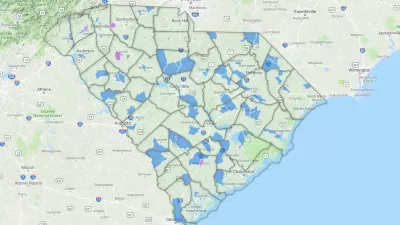The Brookings Institution has provided a data-driven examination of the subject of poverty in the United States, to provide the kind of policy nuance and detail missing from the 2016 presidential campaign.

Elizabeth Kneebone writes an article to illuminate a pressing policy issue that was largely absent from discussion on the campaign trail this year: poverty. Regardless of that lack of conversation, according to Courtin, "both parties do have some serious ideas about how to combat poverty."
Kneebone describes the two very different poverty approaches from each party:
Democratic presidential nominee Hillary Clinton has put forward a policy agenda that includes proposals such as increasing affordable housing options, addressing persistently poor places, and expanding tax credits for working families with children. While Donald Trump has yet to provide specifics on his antipoverty ideas, a proposed Republican playbook on poverty, opportunity, and upward mobility can be found in House Speaker Paul Ryan’s Better Way policy agenda, announced earlier this summer. The two agendas represent distinct visions of an antipoverty/pro-opportunity federal policy agenda and highlight potential elements ripe for bipartisan debate and action.
Following that explanation of the political parties' approach to poverty, Kneebone takes a deep dive into the existing data on poverty. The data reveals some surprising narratives and breaks down into a series of data-rich maps and infographics.
FULL STORY: Poverty crosses party lines

Planetizen Federal Action Tracker
A weekly monitor of how Trump’s orders and actions are impacting planners and planning in America.

Maui's Vacation Rental Debate Turns Ugly
Verbal attacks, misinformation campaigns and fistfights plague a high-stakes debate to convert thousands of vacation rentals into long-term housing.

Restaurant Patios Were a Pandemic Win — Why Were They so Hard to Keep?
Social distancing requirements and changes in travel patterns prompted cities to pilot new uses for street and sidewalk space. Then it got complicated.

In California Battle of Housing vs. Environment, Housing Just Won
A new state law significantly limits the power of CEQA, an environmental review law that served as a powerful tool for blocking new development.

Boulder Eliminates Parking Minimums Citywide
Officials estimate the cost of building a single underground parking space at up to $100,000.

Orange County, Florida Adopts Largest US “Sprawl Repair” Code
The ‘Orange Code’ seeks to rectify decades of sprawl-inducing, car-oriented development.
Urban Design for Planners 1: Software Tools
This six-course series explores essential urban design concepts using open source software and equips planners with the tools they need to participate fully in the urban design process.
Planning for Universal Design
Learn the tools for implementing Universal Design in planning regulations.
Heyer Gruel & Associates PA
JM Goldson LLC
Custer County Colorado
City of Camden Redevelopment Agency
City of Astoria
Transportation Research & Education Center (TREC) at Portland State University
Jefferson Parish Government
Camden Redevelopment Agency
City of Claremont





























